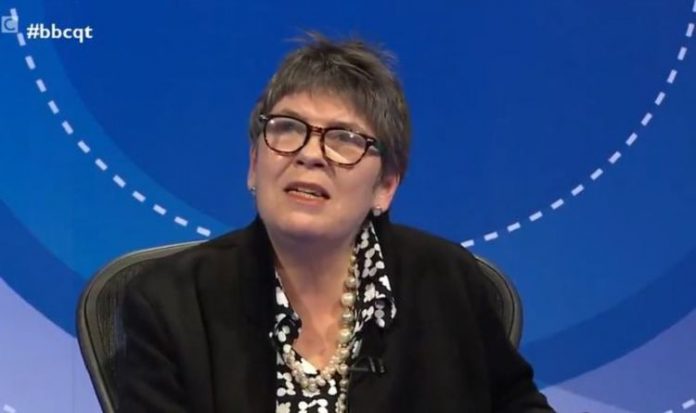The chancellor said this week that public sector workers with the exception of NHS staff and the lowest paid will not receive a pay rise for next year. The lowest paid public sector workers will receive at least a £250 raise.
The news came as part of the spending review amid the coronavirus pandemic which sees the Government battling the worst recession in over 300 years.
Justifying Mr Sunak’s public sector pay freeze, Ms Claire told the BBC Question Time audience that the private sector is “the invisible front line” but that it had been hit hard by lockdown restrictions.
She said: “Let’s consider what, for example, your firebreak lockdown did in Wales to the people who run nail bars, to the hairdressers, to the people whose life savings have been absolutely destroyed, who face bankruptcy, who potentially are going to lose their homes.
“Furlough isn’t sufficient. And many public sector workers are actually in a stronger position at the moment, in terms of job security, than the private sector.
“The private sector is full of people who actually also were the invisible front line that kept us going. The people who dropped off to those people who enjoy working home; the Deliveroo drivers; all of these people deserve pay rises.
“We all deserve pay rises, but what I’d say is that misses the point. At some point, somebody’s got to create – we’ve got to have economic development, economic prosperity and industrialisation that allow a public sector to exist in the first place.
READ: Inheritance tax: Rishi Sunak could hit assets leading to ‘financial issues’
He added: “Rewarding those who have played a vital role in the fight against the virus with a pay freeze is nothing short of a disgrace.
“I appreciate the devil will be in the detail, but the headlines from today’s announcement does nothing to show appreciation to police officers and other public sector workers who have kept the wheels turning during 2020.”
Meanwhile the Rail, Maritime and Transport union threatened to take industrial action.
Mick Cash, the union’s leader, said the RMT would have “no hesitation” in taking such action in order to “deliver our members the pay rise they deserve”.
Think Tanks have also weighed in. The National Institute of Economic and Social Research said the pay freeze could save up to £4 billion, but said the move “departs from common practice in which public wages act as a stabiliser, catching up on the gains made by the private sector during expansions”.
Torsten Bell, chief executive of the Resolution Foundation, said the chancellor will spend £13bn a year less on “non-Covid public services than previously planned”.
He called this “optimistic” and added, according to The Guardian: “It is certain that tax rises will end up playing a bigger part in any real plan to put the public finances on a sustainable footing once the recovery is secured.”







